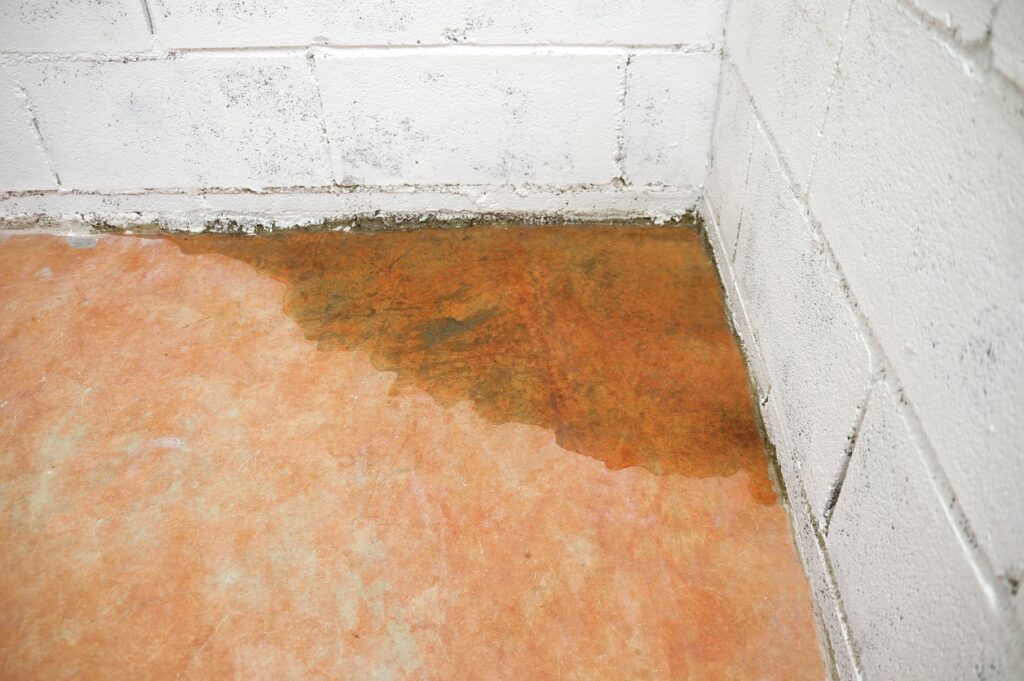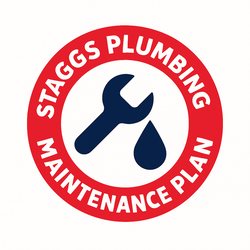Identifying the Early Signs of a Slab Leak: What You Need to Know
Owning a home comes with a lot of responsibilities, and one of the most crucial is maintaining its structural integrity. One hidden menace that many homeowners face is the dreaded slab leak. But what exactly is a slab leak, and why should you be concerned?
This blog post will help you identify the early signs of a slab leak, understand the potential dangers, and learn how to prevent them to protect your most valuable asset—your home.

How to Save Your Home from Slab Leaks Before It’s Too Late
Slab leaks occur when water pipes underneath your home’s concrete foundation begin to leak. These can be caused by several factors, including poor construction, corrosion, and shifting soil. Unfortunately, slab leaks are difficult to detect and can cause significant damage if left untreated.
The first step in saving your home from slab leaks is to identify the early signs. Here’s what you should look out for:
- Unexplained increase in your water bill
- Sound of running water when all faucets are turned off
- Warm spots on the floor
- Damp or wet areas around the perimeter of your home
- Low water pressure
- Cracks in your walls or flooring
If you notice any of these signs, it’s essential to act quickly and call a professional plumber to inspect your home for slab leaks. Ignoring these warning signs can lead to costly repairs and even compromise your home’s structural integrity. But let’s look at things in greater detail.
What is a Slab Leak?
Definition and Causes of Slab Leaks
A slab leak occurs when the water pipes beneath your home’s concrete foundation break, crack, or burst. These leaks can be due to various factors like soil shifting, aging pipes, or poor installation. Over time, the water escaping from these pipes can cause significant damage to your home’s foundation.
Common Signs that Indicate a Potential Slab Leak
Identifying the signs of a slab leak early can save you from costly repairs down the road. Some common indicators include unusually high water bills, unexplained warm spots on your floor, the sound of running water when no taps are open, and visible mold growth around your home. Ignoring these signs can lead to more severe issues, so it’s essential to recognize them early.
Identifying Early Signs
Unusually High Water Bills
One of the first signs homeowners often notice is a sudden spike in their water bills. If you haven’t changed your water usage habits, an abnormally high bill could indicate a hidden leak. Keep an eye on your monthly statements and compare them to previous months to spot any unusual increases.
Warm Spots on the Floor
Another telltale sign of a slab leak is finding warm spots on your floor, especially if you don’t have underfloor heating. These warm areas are usually where the leaking hot water pipe is located. If you feel any such spots while walking barefoot, it’s time to investigate further.
Mold Growth
Mold thrives in moist environments, so unexplained patches of mold on your walls or floors could be a sign of a slab leak. Mold not only damages your home but also poses health risks to you and your family. If you notice mold, don’t ignore it—take immediate action to identify the source of moisture.
How to Conduct a Basic Leak Check at Home
Performing a basic leak check can help you determine if you have a slab leak. Start by turning off all water sources in your home and checking the water meter. If the meter continues to run, it indicates a leak somewhere in the system. Additionally, you can use a moisture meter to check for damp areas on your floors and walls.
The Dangers of Ignoring a Slab Leak
Possible Structural Damage
Ignoring a slab leak can lead to severe structural damage to your home. The constant flow of water can erode the soil beneath your foundation, causing it to shift and crack. Over time, this can lead to uneven floors, cracked walls, and even a compromised structural integrity.
Health Risks Associated with Mold
Mold growth resulting from a slab leak can pose significant health risks, especially for individuals with respiratory conditions or allergies. Prolonged exposure to mold can lead to respiratory issues, skin irritation, and other health problems. Addressing mold growth promptly is crucial for maintaining a healthy living environment.
Steps to Take if You Suspect a Slab Leak
Shutting Off Water
If you suspect a slab leak, the first step is to shut off the water supply to prevent further damage. Locate your main water valve and turn it off. This action will stop the flow of water and minimize additional harm to your foundation.
Contacting a Professional for Inspection and Repair
Once you’ve shut off the water, contact a professional plumber experienced in slab leak detection and repair. They have the necessary tools and expertise to locate the leak accurately and recommend the best course of action for repairs. Delaying professional assistance can exacerbate the issue, leading to more extensive and costly repairs.
Prevention Tips
Regular Inspection and Maintenance
Preventing slab leaks begins with regular inspection and maintenance of your plumbing system. Schedule annual inspections with a professional plumber to detect potential issues before they escalate. Regular maintenance can help identify weak spots in your pipes and address them proactively.
Advice on Protecting Your Home from Slab Leaks
Beyond regular inspections, there are other steps you can take to protect your home from slab leaks. Consider installing a water pressure regulator to prevent excessive pressure on your pipes. Additionally, ensure proper drainage around your home to prevent water accumulation near your foundation. These preventive measures can significantly reduce the risk of slab leaks.
In conclusion, early detection of a slab leak is crucial for protecting your home and ensuring the safety of your family. By recognizing the signs of a slab leak, taking immediate action, and implementing preventive measures, you can avoid costly repairs and maintain the structural integrity of your home.
Stay informed and vigilant about the condition of your plumbing system. Regular inspections, prompt repairs, and preventive measures are your best defense against slab leaks. If you suspect a slab leak in your home, don’t hesitate to contact a professional plumber like our team here at Staggs Plumbing at 972-833-8660 for a thorough inspection and timely repairs.


